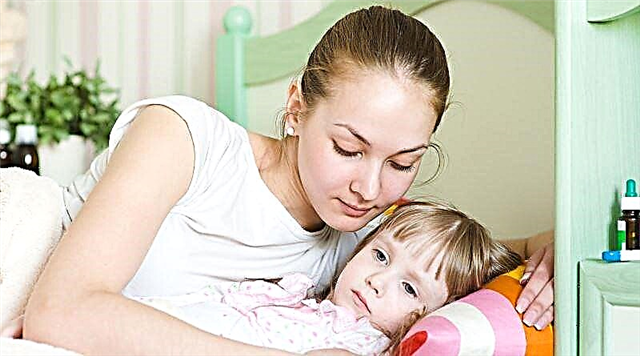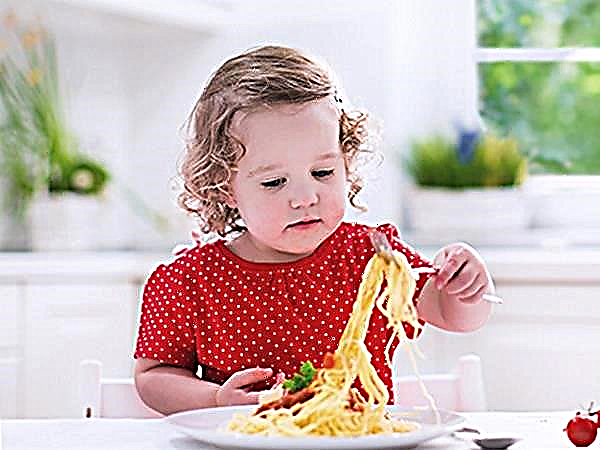
It is not surprising that women in a position pay special attention to their diet. Indeed, while waiting for a child, they are responsible not only for their own well-being and health, but also for the development of the baby. Therefore, the recommendations to eat more vegetables and fruits are generally understandable, but still need clarification. Often, ladies have a question whether it is possible for expectant mothers to eat watermelons and whether large and sweet berries will harm the baby.

Composition and properties
Watermelon is a large berry that, alas, cannot boast of a large list of vitamins and minerals it contains. Most of the watermelon pulp is water and sugar. There is a lot of both in the watermelon. The amount of sugars reaches 13%. These are fructose, sucrose and glucose.
Moreover, a berry ripened on a melon has a minimum amount of sucrose, it accumulates as the berry is stored.
There is less than 1% pectin in the pulp, the same amount of protein. There are small amounts of calcium, sodium, potassium, phosphorus, and iron. Among the vitamins in the composition, it should be noted the presence of ascorbic and folic acid, carotene. 100 grams of pulp contains about 39 kilocalories.
It must be said that watermelons are included in the honorary list of gifts of nature that have medicinal properties: their peels, pulp and seeds are used in pharmacology as raw materials.

It is also valued for its diuretic properties. And besides, watermelons have mild choleretic, anti-inflammatory, antipyretic, laxative and tonic properties.
Pregnant women can eat watermelons, but only taking into account the fact that the effect on their body is fully the same as on the body of non-pregnant women. Therefore, during pregnancy, it is very important to adhere to the rules for using this berry, so as not to harm yourself and your baby.
Benefit
Despite the high content of minerals, the composition of watermelon has a positive effect on the processes of hematopoiesis. Iron, sodium, potassium and phosphorus, combined with a large amount of water in the composition, is a great way to restore the water-salt balance during dehydration, during the heat.
It will be useful for women with severe toxicosis in the early stages, accompanied by vomiting, to replenish the loss of fluid and salt with a piece of ripe watermelon.
Watermelon pulp normalizes digestion processes, prevents a softer and more delicate passage of food through the digestive tract.

This is an excellent prevention of constipation, hemorrhoids, which many expectant mothers suffer in 2-3 trimesters, in the later stages.
In the last stages in the third trimester, many women suffer from iron deficiency anemia, it is even called physiological anemia of pregnancy. And here watermelon can be useful - it is often used in medical nutrition for anemia. The berry is especially indicated for women with diseases of the heart and blood vessels, it thins the blood, prevents thrombosis, varicose veins.
In all women, closer to childbirth, the blood becomes thicker. This mechanism was invented by nature so that there is not a large loss of blood during childbirth. But ladies with vascular problems and with a predisposition to thrombosis can experience severe conditions, including fatal thromboembolism. It is they who are recommended to eat watermelons for prevention.

Inflammatory processes of the urinary tract in pregnant women, due to a natural decrease in immunity, occur frequently. And a pleasant-tasting medicine, and an effective diuretic in the case of cystitis and edema will be watermelon. You will urinate more frequently and the amount of urine will increase.
This will help get rid of edema and pathological weight gain, and will also contribute to recovery in the complex treatment of cystitis, pyelonephritis, urine acid urine output.
Sugar, water and glucose - this is what the future mother needs for the liver... Therefore, in case of problems with this organ, it is strongly recommended to add a large sweet berry to the diet.
If a woman is sick and has a high fever, watermelon juice will help reduce the fever. It is not just a liquid, but a liquid in which essential minerals and vitamins are collected in a very balanced way, which will help to reduce the intensity of fever and eliminate acidosis.

In the early stages of the first trimester, if nausea suffers, small pieces of watermelon can help relieve unpleasant symptoms. And at any time, watermelon stimulates appetite, improves mood and sleep, unless, of course, there is a large amount of pulp just before going to bed. In this case, the diuretic effect simply does not give you enough sleep, forcing the pregnant woman to run to the toilet again and again.
Potential harm
The pulp of watermelon has the ability to easily absorb nitrates, nitrogenous compounds, with which melons are treated for their faster ripening. The producers' motives are clear: the sooner they start selling watermelons, the more profit they will get, because people who yearn for the winter and spring are happy to pounce on large and sweet berries.
It is better for pregnant women to refrain from the first watermelons., to exclude even the very likelihood of getting poisoned. This rule applies both for 1 trimester and for the next two.
The best time to buy a watermelon is late July or later. Better yet, play it safe and wait until August.
It was at this time that fruits that were grown without the use of fertilizers begin to ripen on the melons.

The harm can be caused not so much by the watermelon itself as by its quantity. If you eat too much pulp, then you can provoke an excessive load on the kidneys, which in pregnant women already work for two. And the swelling, from which I wanted to get rid of, on the contrary, will intensify.
Too much watermelon treats can cause diarrhea, which, like constipation, is undesirable while waiting for the baby.
In the later stages, the amount of food consumed should be reduced in order to support the kidneys and not cause fluid accumulation in the intercellular space.
Some women cannot eat these berries. First of all, we are talking about women with a tendency to diarrhea, suffering from irritable bowel syndrome. With urolithiasis, you should also abstain. from eating this product. Sudden stress on the kidneys can cause the stone to come off and block the ureter, which may require major surgery.
The berry is not recommended for women with diabetes... But in cases where the state of carbohydrate metabolism disorder is well regulated and corrected, on an individual basis, the doctor can allow the product in small quantities. With gestational diabetes, a small amount of watermelon pulp is permissible strictly with the knowledge and permission of the attending physician.
In other cases, it is not only possible to feast on watermelon, but it is also necessary in the first trimester in the early stages, and in the second, and in the third.

Terms of use
To make the watermelon not harmful, but extremely useful, learn to choose the right berries.
A poisonous and potentially dangerous nitrate fruit can be distinguished from a good one by a combination of the following features:
- if you knock on a watermelon with your knuckles, the nitrate one makes a dull sound;
- if you squeeze a berry, the nitrate one never crackles, it seems softer when squeezed;
- a nitrate watermelon in the section is always uniform in color, smooth, almost reference, and a normal fruit cannot boast of an even in consistency and color inside;
- harmful watermelon has harsh and yellowish streaks in the pulp, and good watermelon is light and tender.
If in doubt, cut a small piece and place in a container of water. If the water turns pink, then this is a nitrate berry, you should not eat it.
Not only chemical berries are dangerous, but also too ripe watermelons, in which a colony of bacteria is already multiplying at full speed. These watermelons are easy to buy if sold in the heat. Pay attention to cracks, damage to the integrity of the shell. Avoid buying a watermelon that has been cut in half by sellers.
Before eating, wash the berries thoroughly under running water. Store the cut watermelon only in the refrigerator, no more than a day.

You will learn more about how to check the quality of a watermelon by watching the following video.
What to do in case of poisoning?
Poisoning is indicated by a feeling of severe weakness, headache, diarrhea, vomiting, general intoxication, and sometimes the temperature rises. In an "interesting position" you cannot take risks, and therefore immediately call an ambulance and go to the hospital, where you will be provided with urgent detoxification therapeutic assistance.
Remember that poisoning is especially dangerous in the early stages of up to 13 weeks and for periods from 27 to 37 weeks, since miscarriage or premature birth is possible.

Before the arrival of doctors, try to free your stomach from the remains of dangerous food as much as possible. Drink plenty of clean water, try to stimulate vomiting after that, rinse the stomach.
Do not take any medication before being examined by a specialist.
As it is?
First of all, you need to discuss this issue with your doctor. Only a specialist observing you knows exactly how much juicy and sweet berries will not harm you and will benefit you.
Nutritionists advise pregnant women to eat watermelon separately from other food, do not combine it with other fruits, do not seize the pulp with slices of black or white bread, as many people like to do.
It is best to make watermelon snacks by introducing the product as a stand-alone meal instead of an afternoon snack or as a second breakfast. You should not eat a berry before bedtime - this can disrupt it and lead to severe swelling of the legs and face in the morning.
The optimal amount is considered to be 300-600 grams of product per intake.... But this amount may be too large for women with gestosis and a tendency to edema, and therefore it is still better to listen to the advice of the attending physician.




